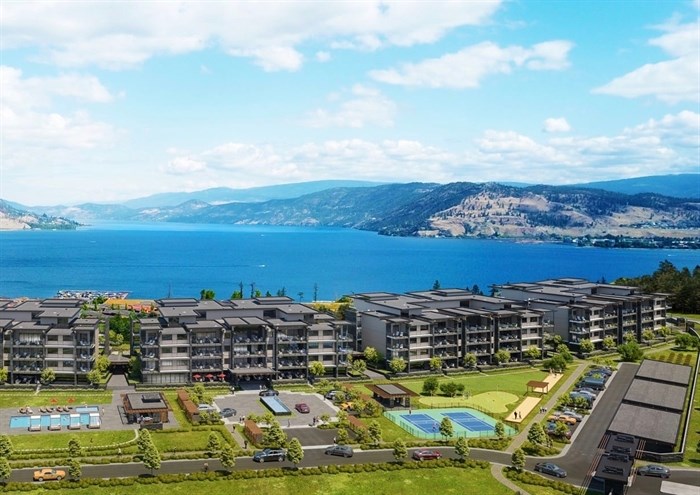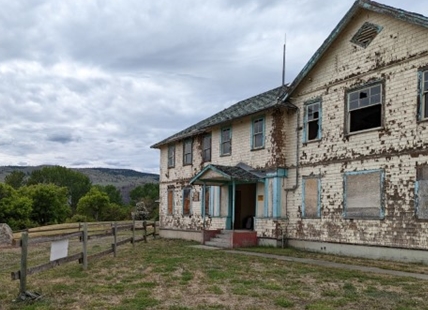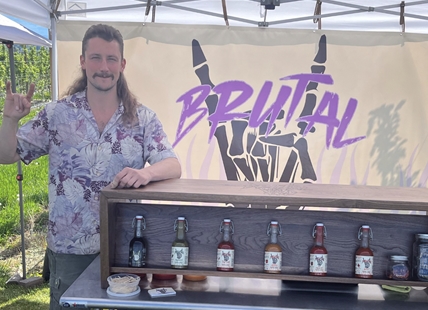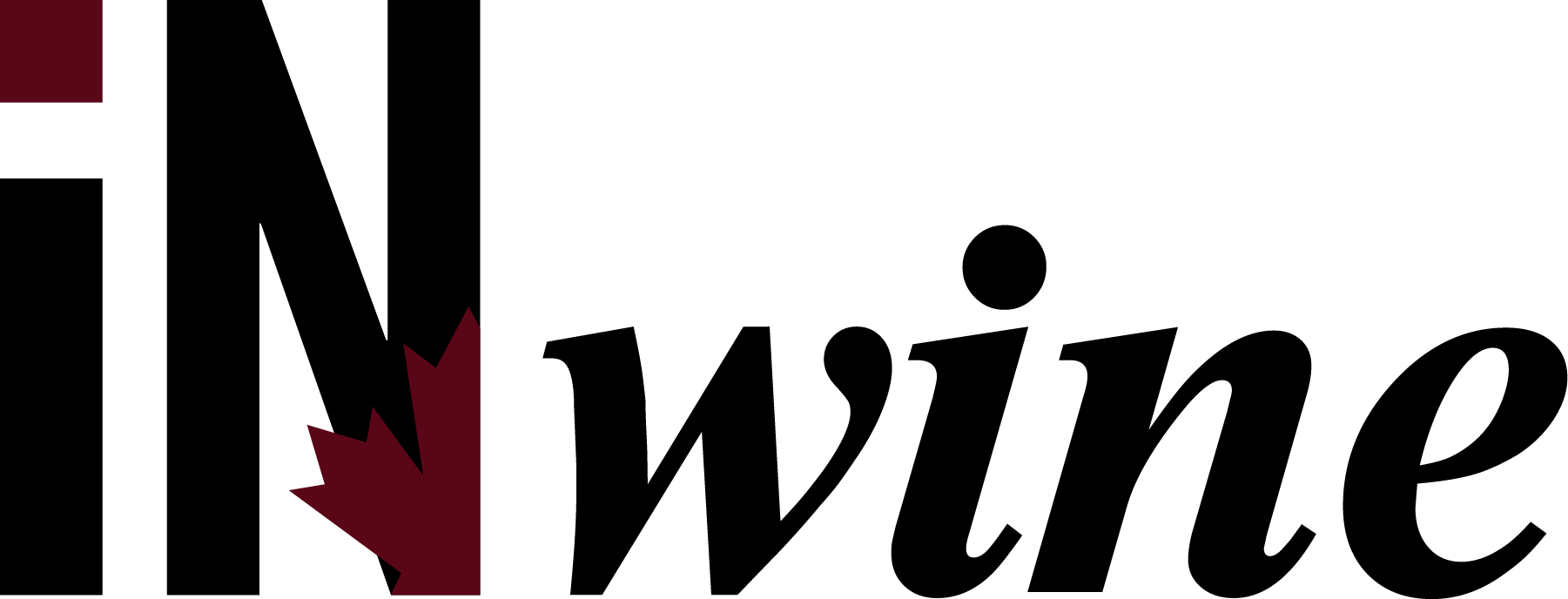Westbank First Nation outshining Okanagan cities on new home construction

When it comes to issuing building permits for new housing, the tiny Westbank First Nation is punching well above its weight.
And it's been doing it for years.
“I think developers have recognized the security in leases on reserve and the value there is to be able to build,” Graeme Dimmick, manager of planning and development for Westbank First Nation, told iNFOnews.ca. “We’ve seen that shift over the last eight to 10 years. They’re not looking at reserve as a bad thing and there’s a lot of security that’s been created.”
A good portion of the Westbank First Nation land is owned by band members under Certificates of Possession. Other lands are owned jointly by all the band members.
Regardless of the ownership status, the land cannot be sold so, after gaining self-government status in 2005, the band adopted a policy of selling long term leases for the development of its lands.
READ MORE: Imaginary cows had a say in where Westbank First Nation reserves were placed
Those leases typically run for 125 years, much longer than the lifespan of most buildings constructed on the land.
“In theory, when the lease ends, it reverts back to the original Certificate of Possession holder but, what I would expect to happen is that, as the lease closes in on its expiration date, there will likely be some kind of renegotiation,” Dimmick said. “You could see a renegotiation of the lease that goes along with redevelopment.”
Leasing is less of an issue for multi-family rental developments, which is the trend these days, since renters are not concerned about what may happen 125 years down the road.
Roughly 10,900 people live on the band’s two reserves (IR9 and IR10) according to the Regional District of Central Okanagan. Fewer than 1,000 are band members.
So far this year the band has issued building permits for 595 housing units. That’s far ahead of the surrounding City of West Kelowna (244) and Penticton (132), both of which have more than 36,000 residents.
Even Vernon, with about 45,000 residents, only issued permits for 313 units by the end of August.
Over the past five years, permits for more housing units have been issued by Westbank First Nation (1,727) than either West Kelowna (1,648) or Penticton (1,717).
Vernon, over those five years, issued 1,946 permits.
The Westbank totals come despite the fact that last year was a very slow year for housing permits with only 38 issued.
“I think it’s because we’ve seen a shift from single-family to these larger multi-family projects,” Dimmick said. “It is not necessarily cyclical. This year, we’ve had a lot of development applications that had been slowly moving forward and have actually proceeded. Last year, I think, there was a lot of planning.”
The development process is similar on Westbank First Nation land as anywhere else but there are key differences.
Land has to be properly zoned but there are no time-consuming public hearings. Instead, notification letters are sent to affected interest holders, neighbours and band members.
Applications only go through two readings by the band council compared to, potentially, four by a municipal council.
Studies of the time to process development applications typically put Westbank First Nation ahead of most municipalities, Dimmick said.
Land costs are not much of a factor in the decision to build there.
“Five plus years ago, land on reserve was probably valued slightly less,” Dimmick said. “I think we’re actually quite similar now to freehold properties, especially with the larger multi-family rental projects.”
Many projects for the 2,800 or so units in the planning stages are in the 300-500 unit range, he said.
Last November, Edmonton-based Westrich Pacific spent $25 million on a 125-year lease on 14 acres of waterfront land near the old ferry docks. It has plans for a 700-800 unit housing complex and a 350-berth marina.
READ MORE: Waterfront lease-lot sells for more than $25 million on Westbank First Nation lands
Further inland, the lease for 10 acres of band land that is part of the Copper Sky development is on sale for $12 million.
The real estate listing says it’s approved for 167 townhomes but Dimmick said that part of the overall project seems to be on hold so plans could change.
Another benefit of leasing on band land is there is no speculation tax for non-resident owners as there is in West Kelowna and Kelowna.
There is also no land transfer tax, since the land is leased. That tax starts at 1% and rises to 3% for properties selling for more than $2 million.
Given only slight differences in costs to build on lease land versus freehold, why is there such a big difference in the amount of construction in Westbank compared to much larger Okanagan cities?
It may be simply land availability.
“On IR10, just over the bridge, there are large tracts of undeveloped land which, I think, makes doing these larger projects a bit easier,” Dimmick said. “That could be a factor in it. I don’t know how many 10-plus acres are available in the City of Kelowna within their growth boundaries.”
In the past, most of the construction was on IR9 in the form of commercial development along Highway 97.
“In the last five years, there’s been a huge shift over to IR 10,” Dimmick said. “I think part of it is the large tracts of land, proximity to Kelowna and, on IR 10, a lot of the infrastructure is new, in terms of water and sewer, so it is easy to develop.”
That supply advantage is slowly declining but, with another 2,800 housing units in the pipeline adding to the 1,700 from the last five years, the pace of building on Westbank First Nation lands looks to be impressive for years to come.
To contact a reporter for this story, email Rob Munro or call 250-808-0143 or email the editor. You can also submit photos, videos or news tips to the newsroom and be entered to win a monthly prize draw.
We welcome your comments and opinions on our stories but play nice. We won't censor or delete comments unless they contain off-topic statements or links, unnecessary vulgarity, false facts, spam or obviously fake profiles. If you have any concerns about what you see in comments, email the editor in the link above. SUBSCRIBE to our awesome newsletter here.









